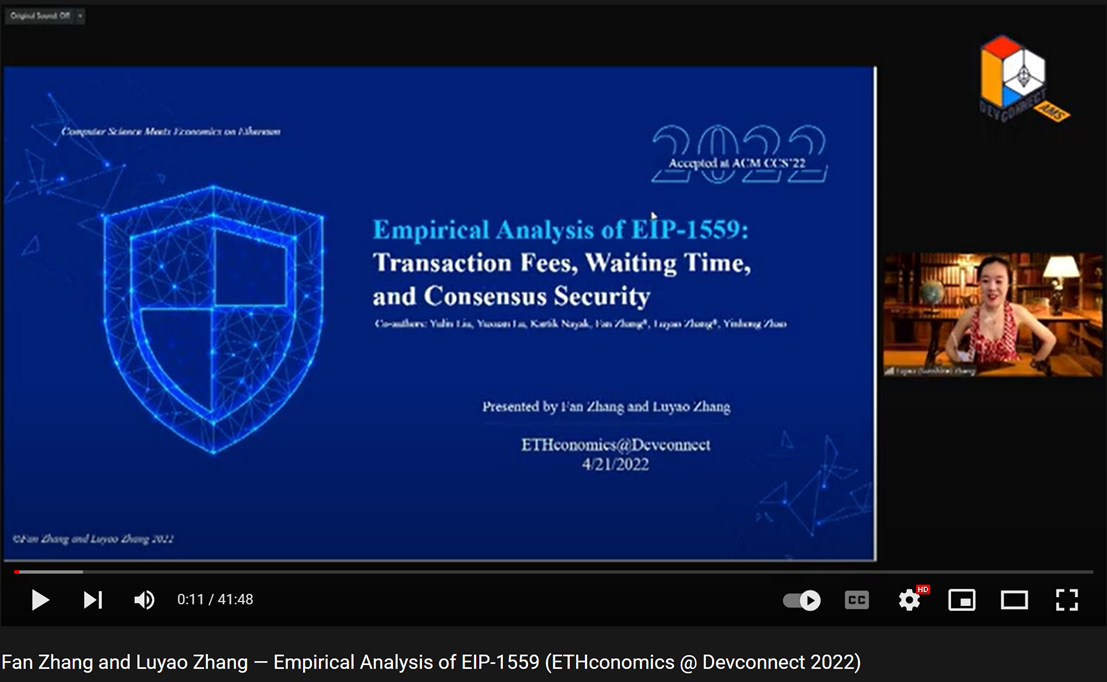Empirical Analysis of EIP-1559: Transaction Fees, Waiting Time, and Consensus Security
A transaction fee mechanism (TFM) is an essential component of a blockchain protocol. However, a systematic evaluation of the real-world impact of TFMs is still absent. Using rich data from the Ethereum blockchain, the mempool, and exchanges, we study the effect of EIP-1559, one of the earliest-deployed TFMs that depart from the traditional first-price auction paradigm. We conduct a rigorous and comprehensive empirical study to examine its causal effect on blockchain transaction fee dynamics, transaction waiting times, and consensus security. Our results show that EIP-1559 improves the user experience by mitigating intrablock differences in the gas price paid and reducing users' waiting times. However, EIP-1559 has only a small effect on gas fee levels and consensus security. In addition, we find that when Ether's price is more volatile, the waiting time is significantly higher. We also verify that a larger block size increases the presence of siblings. These findings suggest new directions for improving TFMs.
PDF Abstract
 Replication Data for: "Empirical Analysis of EIP-1559: Transaction Fees, Waiting Time, and Consensus Security"
Replication Data for: "Empirical Analysis of EIP-1559: Transaction Fees, Waiting Time, and Consensus Security"